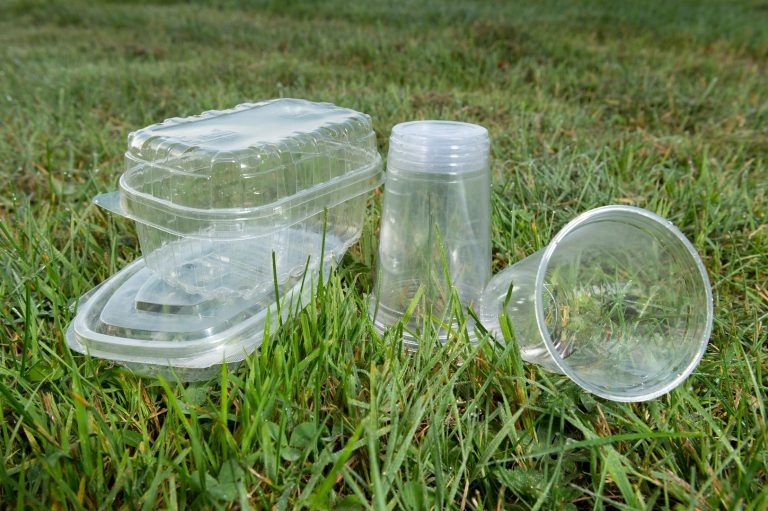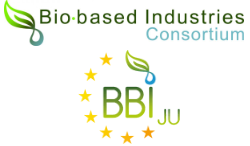Author: Tom Ewing and Mattijs Julsing, Wageningen University & Research
Finding efficient ways to reuse and recycle plastic waste is of utmost importance both to prevent environmental contamination and to ensure efficient use of the resources used in the production of plastics. Certain types of plastic can be readily recycled by mechanically reshaping waste into new material without altering the structure of the molecules of which it is composed. For some types of plastic, however, this is not feasible or leads to a decrease in quality. ENZYCLE focusses on the development of enzymatic processes that will allow us to recycle plastic fractions that are not recycled using current recycling technologies.
The ENZYCLE project will target a number of plastic fractions that are not currently recycled. Multilayer plastic materials composed of both the polyester PET and a polyolefin (PE or PP) are commonly used to produce trays for meat packaging or flexible packaging films. These materials are difficult to process using mechanical recycling as they are composed of multiple types of plastic. In ENZYCLE, we will make use of the fact that certain enzymes are capable of breaking down PET under mild reaction conditions, leaving polyolefins intact. We will make use of this to develop recycling processes where the PET layer of multilayer packaging is removed by enzymatic depolymerisation, yielding an intact polyolefin layer. A key issue here is that PET contains crystalline domains that are not readily accessible to degradation by enzymes. ENZYCLE will develop innovative pre-treatment methods by which the accessibility of these regions to enzymatic degradation can be increased. After degradation of the PET, its constituent chemical building blocks will be isolated and used to produce new plastic materials. Meanwhile, the obtained polyolefin layers can be recycled into new materials using current recycling technologies. Alternatively, polyolefins can be broken down using enzymes, which the ENZYCLE project also aims to identify. Again, this might yield products that can be processed into other new materials.
Enzymes developed in ENZYCLE will also be applied in the depolymerisation of PET from post-consumer waste containing PET clamshell containers and trays. In current recycling processes, these materials are found in a fraction known as “sorted, non-bottle PET”. Although it is available in large volumes, mechanical recycling technologies are unable to produce a high quality recycled PET from this fraction and chemical recycling technologies are still in their infancy. A large portion (ca. 60%) of this fraction is multilayer packages, composed of PET in combination with various other types of plastic. Although chemical depolymerisation can effectively remove PET, the harsh reaction conditions can damage the other plastic layers, causing problems in subsequent process steps. The mild conditions required for enzymatic PET degradation will hopefully help to circumvent this issue and facilitate the development of new recycling technologies for this complex feedstock.
ENZYCLE will also employ enzymes in the breakdown of microplastics from wastewater treatment plants. Accumulation of microplastics in the environment is a major societal issue. Even when they can be isolated, microplastics are difficult to recycle as they typically consist of many different materials. In ENZYCLE, microplastics will be isolated from wastewater in a wastewater treatment plant. They will then be subjected to enzymatic degradation to obtain components that can be used in the production of new plastics. Both polyesters (PET) and polyolefins (PE and PP) will be degraded using enzymes and/or microorganisms in ENZYCLE, making it possible to obtain useful degradation products from these fractions without sorting them into their individual constituents.
Enzymatic recycling processes hold great promise due to the mild reaction conditions under which they are performed and their selectivity towards a single type of plastic in mixtures. Challenges faced by enzymatic recycling include ensuring full accessibility of plastics, including crystalline domains, to enzymatic degradation, and isolation and reuse of degradation products. The processes developed in ENZYCLE will contribute to solving these challenges and making enzymatic recycling an efficient, environmentally friendly, recycling technology for the future economy.




